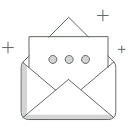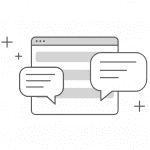What is a Craniotomy?
A craniotomy is a surgery done to remove a small portion of the skull to relieve pressure in that area when your brain swells. The doctor may perform a craniotomy to have access to the brain to treat multiple conditions. After whatever procedure is necessary, the skull is replaced.
A neurosurgeon may perform a craniotomy for brain tumors in children to remove as much of the tumors as possible safely. A ‘bone flap’ will be removed from your child’s skull during surgery. This type of operation is called a ‘craniotomy’. It allows the neurosurgeon to see into your child’s brain and to remove the tumor. It is the most common type of surgery for brain tumor patients and the complete removal of the tumor being called ‘total resection’. But the removal of part of the tumor is called as ‘partial resection’ or ‘de-bulking’.
The aim of removing the tumor includes:
- increasing the chances of a cure
- slowing the tumor’s growth
- improving symptoms e.g. to reduce pressure on vital nerves such as the optic nerve
- helping other treatments to work better, such as chemotherapy or radiotherapy.
What is Craniotomy recommended?
A craniotomy may be done for a variety of reasons, which includes the following:
- Removing, or treating brain tumors
- Clipping or repairing of an aneurysm
- Removing blood clots from a leaking blood vessel
- Removing an arteriovenous malformation (AVM) or addressing an arteriovenous fistula (AVF)
- Draining a brain abscess, that is an infected pus-filled pocket
- Repairing skull fractures
- Repairing a tear in the membrane which is lining the brain (dura mater)
- Relieving pressure in the brain (intracranial pressure) by removing damaged or swollen areas of the brain that can be caused by traumatic injury or stroke.
- Treating epilepsy
- Implanting stimulator devices to treat movement disorders such as Parkinson’s disease or dystonia (a type of movement disorder)
- It is also done to treat conditions that cause your brain to swell or bleed.
There could be other reasons for your doctor to recommend a craniotomy.
Request a Free Estimate

- Travel to India for Affordable and Advanced Healthcare
How is Craniotomy Surgery Performed?
A craniotomy usually requires a hospital stay of 3 to 7 days. Your child may also go to a rehabilitation unit for several days after your hospital stay.
Step 1 – Your child will be given a general anesthetic to fall asleep and a small area of their head may be shaved and a local anesthetic is given to the part of the scalp.
Step 2 – An incision (cut) is made in their scalp and a small part of their skull (‘bone flap’) will be removed. Your child will not experience any pain during this as they will be under anesthetic.
Step 3 – As much as possible the tumor is safely removed and the bone flap will be replaced and the wound closed using stitches or metal clip.
Step 4 – Steroids will be given to help with any swelling.
IMPORTANT NOTE: Not all brain tumors can be operated on. If the tumor is too near a sensitive area of the brain, such as the brain stem which controls breathing; or the optic nerve which is responsible for sight. Brain tumor surgery is not performed on the tumor which is low grade or grows slowly which is not likely to spread and it may cause minor or controllable symptoms and trying to remove the tumor can cause more harm than not operating. In such cases, your child will be actively monitored which is sometimes called ‘watch and wait’.
Want more clarification about medical expense & treatment plan?
Plan Your Craniotomy Surgery In India
Get a Free Doctor's OpinionWhatapp UsWhat is the Post-Operative care for Craniotomy Surgery?
Immediately after the procedure, your child will be taken to the intensive care unit (ICU) to be closely monitored. In the ICU, your child may be given medicine to decrease brain swelling. After staying in the ICU, they will move your child to a room in a neurosurgical nursing unit in the hospital. Your child will be taught deep-breathing exercises to help re-expand the lungs and prevent pneumonia. Frequent neurological checks will be done by the nursing and medical staff to test your child’s brain function and to make sure your body systems are functioning properly after surgery.
What happens after the Craniotomy Surgery?
The recovery of a craniectomy depends on the severity of the injury or condition.
- Incision Care
- Wash incision with mild shampoo/water daily
- You may scrub incision lightly with a washcloth to help prevent scab formation
- Do not go to the beach/pool until cleared by the provider
- Avoid direct sunlight on the incision, may cover the area to go outside
- Activity
- Light activity until seen in the clinic
- No school for the first 2 weeks after discharge, unless cleared by the provider
- No participation in Physical Education for 1 month
- Pain
You may take over the counter medications, which include:
- Acetaminophen every 4 hours as needed
- Ibuprofen every 6 hours as needed
- Follow-up Visits
- Your follow up visit with the Neurosurgery practice will be 10-14 days after leaving the hospital. This visit will be to remove your sutures (if applicable) and a physical evaluation.
What are the Complications for Craniotomy?
As with any surgical procedure, complications may occur. Brain surgery risk is connected to the specific location in the brain that the operation will affect. For example, if the area of the brain that controls speech is operated on, then the speech can be affected. Some general complications include, but are not limited to, the following:
- Infection
- Bleeding
- Blood clots
- Pneumonia (infection of the lungs)
- Unstable blood pressure
- Seizures
- Muscle weakness
- Brain swelling
- Leakage of cerebrospinal fluid (the fluid that surrounds and cushions the brain)
The following complications are rare and they relate to specific locations within the brain, so they may be valid risks for certain individuals:
- Memory problems
- Speech difficulty
- Paralysis
- Abnormal balance or coordination
- Coma
There could be other risks depending on your specific medical condition. Make sure to discuss any concerns with your doctor before the procedure. You can contact your doctor if any of the following occurs:
- Fever greater than 101.5°F degrees oral
- Headaches not relieved with pain medication
- Nausea/vomiting
- Increased swelling, redness or oozing from the incision area
- Changes in alertness increased seizure activity.
Craniotomy Surgery at Treatment Possible
At Treatment Possible, our main objective is to provide the best options for Craniotomy surgery cost in India. Thus, we recognize the significance of excellent health and well being of our guests by preferring association with the Top 10 neurosurgeon in India. We encourage you to educate yourself about the cost of Craniotomy surgery in India and then make an informed decision.
You can also send your medical reports for treatment with the best neurosurgery hospital in India to care@treatmentpossible.com for free opinions and suggestions from Top Neuro Surgeon in India with the hassle-free setup of post-operative recovery care, medical travel & stay during the Medical treatment. No matter what the health condition, you always get good healthcare options and cost advantage from Treatment Possible.
Our Services
From Treatment To Recovery, We Are Always There With You!

Medical Visa Letter
We provide a Medical visa letter for which we require the scanned passport copies of the patient and attendant.

Arrange An Appointment With A Surgeon
We arrange for the appointment with the surgeon, confirm for the hospital room and operation theatre (if required)

Post Surgery Follow Up
We help you to fix your telephonic appointment for future follow-ups

Complimentary Pickup
We arrange for complimentary pickup and drop services from the airport.

All The Necessary Arrangements
We arrange for hospital admission, forex exchange, sim card and local assistance

No Need To Worry About Essential Expenses!
We help in sorting out the hospital bill, return ticket, medicines and other essential purchases.
Frequently Asked Questions:
How long will it take to recover from a Craniotomy?
It can take 4 to 8 weeks to recover from surgery. Your incisions will be sore for 5 days shortly after the surgery. You may also have numbness and shooting pains near your wound, or swelling and bruising around your eyes.
Can Craniotomy cause seizures?
Craniotomy with surgical resection is the main treatment of primary brain tumors. Post-craniotomy seizures have been reported to occur at different rates that ranged from 1.1 to 29%5-7,15,16 possibly because of the different patient case-mix of the studies.
Does the skull heal after a Craniotomy?
After the operation, your hair will grow back on the place where it has been shaved for the surgery. Once the wound on your head has healed, and your stitches or clips have been removed, you can wash your hair and use hair products as usual.
Can a Craniotomy cause memory loss?
Brain tumors and resection surgery will cause physical changes to the brain tissue and can lead to diffuse cognitive deficits, including problems with attention, memory, executive functioning, and information processing.
What precautions should be taken to prevent loss of or damage to the bone flap during Craniotomy?
The bone flap can be folded back and secured during the procedure or removed completely. During the procedure, the scrub should provide a continuous stream of irrigation fluid over the drill tip or saw during drilling.
Can you fly after a Craniotomy?
Patients who had brain surgery should wait for 7 to 10 days following the operation to fly in an Airplane. After that time, patients normally have no restrictions on air travel.
